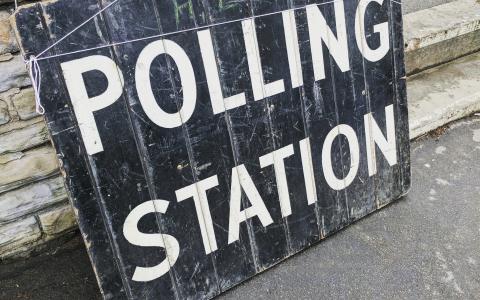
(Reuters) - The U.S. Federal Reserve will cut its key interest rate twice this year, starting in September, according to a stronger majority of economists polled by Reuters who broadly raised their inflation forecasts for a second consecutive month.
Although Fed officials have reassured markets its next move will be a cut, insufficient progress bringing inflation down further alongside rising price expectations has stoked some doubts about whether the Fed will move at all this year.
While both federal funds futures contracts and economists see a very low chance of rates remaining unchanged through year-end, economists are now more convinced the Fed will wait until September than they were about a month ago.
Nearly two-thirds of economists surveyed, 70 of 108, predicted the first reduction in the fed funds rate in September, to a 5.00%-5.25% range. Those results, from the May 7-13 poll, compared with just over half expecting a September cut when they were surveyed last month.
Only 11 forecast a July cut and none said June, compared to 26 and four in the April survey.
"We had nothing but bad news on the inflation front through the first quarter...all of those inflation increases were too big to allow rate cuts," said Chris Low, chief economist at FHN Financial, who expects the Fed to cut twice this year, in September and November.
"For the Fed to cut rates, we have to see a change in trend. One month of good news will not be enough to allow a cut, they need several months. There is a pretty significant risk they will do less than two."
April consumer price index (CPI) numbers are due to be released on Wednesday. U.S. consumer prices are forecast to have increased 0.4% month-on-month in April, the same as in March, a separate Reuters poll predicted. But an upside surprise could lead to a change in expectations toward lesser cuts.
The personal consumption expenditures (PCE) price index, which the Fed targets at 2%, has risen over the past few months, suggesting the bar for a rate cut is still high.
In the latest Reuters poll, economists broadly upgraded their 2024 outlook for inflation - CPI, core CPI, PCE and core PCE - for the second straight month.
None of those measures of inflation were expected to reach 2% until at least 2026.
"We readily acknowledge that it would not take much for the start of the cutting cycle to be pushed back until November. What's more, the risks to that call are heavily skewed toward there being one cut in 2024 as opposed to three cuts," noted economists at Wells Fargo.
Around 60% of participants in the latest poll, 65 of 108, predicted two quarter-point cuts this year, up from half of the sample a month ago.
But only 17 now see more than two rate reductions, just half the 34 in April. While 25 saw only one reduction, one said none.
An over-60% majority of economists who replied to an additional question, 26 of 41, said the chances were low or very low the Fed would hold rates for the remainder of the year.
"We readily acknowledge that it would not take much for the start of the cutting cycle to be pushed back until November. What's more, the risks to that call are heavily skewed toward there being one cut in 2024 as opposed to three cuts," noted economists at Wells Fargo.
Around 60% of participants in the latest poll, 65 of 108, predicted two quarter-point cuts this year, up from half of the sample a month ago.
But only 17 now see more than two rate reductions, just half the 34 in April. While 25 saw only one reduction, one said none.
An over-60% majority of economists who replied to an additional question, 26 of 41, said the chances were low or very low the Fed would hold rates for the remainder of the year.
By Indradip Ghosh
Polling by Purujit Arun and Sujith Pai
Editing by Ross Finley and Chizu Nomiyama



